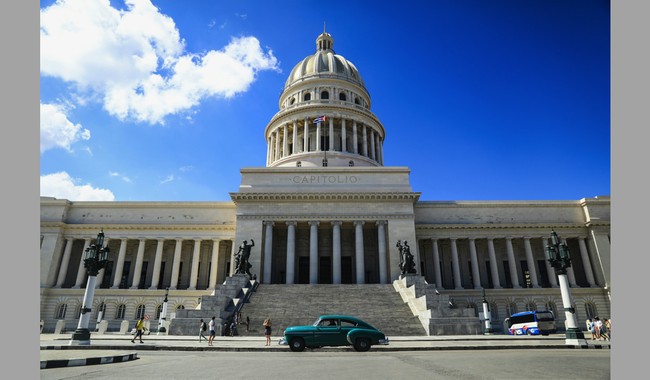We support our Publishers and Content Creators. You can view this story on their website by CLICKING HERE.

I can’t pinpoint when I first heard of “Havana Syndrome.” The name conjures up the notion of some sort of tropical fever or ailment but, in fact, refers to a constellation of symptoms, including headaches, dizziness, tinnitus, nausea, and cognitive issues — often with sudden onset.
Advertisement
It was first reported by U.S. Embassy staff in Havana, Cuba (hence, the name) in 2016, and seems to afflict primarily U.S. government employees and their families, leading to questions as to whether its cause could be the result of some sort of weapon/attack from a foreign adversary.
In March of 2023, the Intelligence Community put out an assessment that the curious affliction was not caused by a foreign adversary.
No Foreign Adversary Behind Havana Syndrome According to Intelligence Report
But even at the time, there remained serious questions — about the condition itself and the follow-up care being provided for those afflicted by it as well as the reliability of the assessment.
Unfortunately, these findings leave those who have been afflicted with Havana Syndrome with numerous unanswered questions. As WaPo notes:
The new intelligence report may represent the official word on the strange health ailment, but it probably won’t be the last word on the matter.
Representatives and lawyers for people suffering with symptoms lambasted the new report as incomplete and opaque. They called on intelligence agencies to disclose more information about how they reached their conclusions and to investigate other leads they said remained poorly examined.
On Thursday, House Permanent Select Committee on Intelligence CIA Subcommittee Chairman Rick Crawford (R-AR) released an unclassified interim report regarding the committee’s investigation into these (now-rebranded) “Anomalous Health Incidents” (AHIs) and criticizing the Intelligence Community Assessment (ICA) for its dubious conclusions regarding the source of the AHIs as well as for its stonewalling and obfuscation of the committee’s efforts to investigate the matter.
Advertisement
The HPSCI report is not lengthy — only 10 pages — and somewhat limited in terms of what can be disclosed in an unclassified manner. But it pretty well calls the IC on the carpet for shoddy analysis and shady response to the committee’s oversight.
Below, via the committee’s press release, are some of the key takeaways from the report (emphasis included in the original):
- It is increasingly likely a foreign adversary is responsible for some portion of reported AHIs.
- The Committee has direct evidence the Intelligence Community Assessment on AHIs was developed in a manner inconsistent with analytic integrity and thoroughness.
- a. The assessment is sufficiently problematic as to hinder the Subcommittee’s trust in the Intelligence Community’s process and conclusions.
- The Intelligence Community tried to impede the CIA Subcommittee’s investigation at every turn.
- This interim report is just the beginning of the CIA Subcommittee’s work on the IC’s response to AHIs.
- Chairman Crawford is currently finalizing a substantial and highly classified report. It involves very sensitive information gathered over the past two years that was previously unknown to the Committee.
- The conclusions published by the DNI in the unclassified Intelligence Community Assessment on AHI are dubious at best, misleading at worst.
- Changes are needed to address the irregularities in investigative and analytic processes that resulted in the IC’s published conclusions on AHI.
- Additionally, the U.S. government must codify and establish clear, effective medical care, particularly long-term care, for AHI-affected personnel.
- a. Many of the U.S. personnel involved in AHIs are continuing to suffer with ongoing medical issues.
Advertisement
In a nutshell, the ICA released in March 2023 was largely bunk and a huge disservice to those in the IC workforce afflicted with AHIs, and there appears to be something more nefarious afoot — involving a foreign adversary. Yet the IC is averse to allowing the matter to be thoroughly investigated. Why?

 Conservative
Conservative  Search
Search Trending
Trending Current News
Current News 





